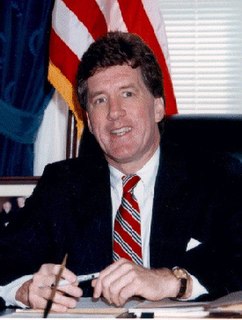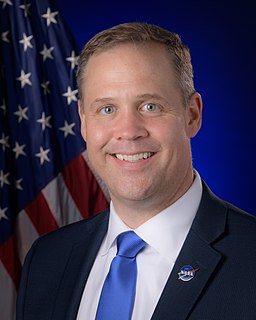A Quote by Frank Chodorov
We cannot restore traditional American freedom unless we limit the government's power to tax. No tinkering with this, that, or the other law will stop the trend toward socialism. We must repeal the Sixteenth Amendment.
Related Quotes
Because of the free speech clause in the First Amendment, which is very clear, "The government shall make no law abridging freedom of speech," and it literally is about political speech. You can say anything you want about politics, a candidate, and the government cannot stop you. And the Democrats hate that.
John Marshall's warning that the power to tax is the power to destroy has taken on far greater meaning... more specifically, the power of the Internal Revenue Service is threatening to destroy the freedom of religion , guaranteed by the First Amendment. As part of that guarantee, Congress has granted tax exemptions for churches to avoid excessive interference in their religious activities.
Repeal the Missouri Compromise - repeal all compromises - repeal the Declaration of Independence - repeal all past history, you still cannot repeal human nature. It will be the abundance of man's heart that slavery extension is wrong; and out of the abundance of his heart, his mouth will continue to speak.
I prefer an income tax, but the truth is I am afraid of the discussion which will follow and the criticism which will ensue if there is an other division in the Supreme Court on the subject of the income tax. Nothing has injured the prestige of the Supreme Court more than that last decision, and I think that many of the most violent advocates of the income tax will be glad of the substitution in their hearts for the same reasons. I am going to push the Constitutional amendment, which will admit an income tax without questions, but I am afraid of it without such an amendment.
It was not until the Abraham Lincoln administration that an income tax was imposed on Americans. Its stated purpose was to finance the war, but it took until 1872 for it to be repealed. During the Grover Cleveland administration, Congress enacted the Income Tax Act of 1894. The U.S. Supreme Court ruled it unconstitutional in 1895. It took the Sixteenth Amendment (1913) to make permanent what the Framers feared -- today's income tax.
I think the reality is that copyright law has for a very long time been a tiny little part of American jurisprudence, far removed from traditional First Amendment jurisprudence, and that made sense before the Internet. Now there is an unavoidable link between First Amendment interests and the scope of copyright law. The legal system is recognizing for the first time the extraordinary expanse of copyright regulation and its regulation of ordinary free-speech activities.
...The Bill of Rights is a literal and absolute document. The First Amendment doesn't say you have a right to speak out unless the government has a 'compelling interest' in censoring the Internet. The Second Amendment doesn't say you have the right to keep and bear arms until some madman plants a bomb. The Fourth Amendment doesn't say you have the right to be secure from search and seizure unless some FBI agent thinks you fit the profile of a terrorist. The government has no right to interfere with any of these freedoms under any circumstances.































